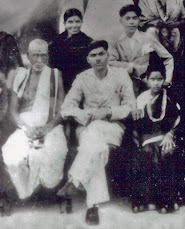If I examine my thoughts sincerely, and I examine the world and what it does to me, I am likely to find that there is some close relationship between the two. This correspondence is in the measure of the intensity and frequency of your thought forms. The more closely you follow the discipline of self-inquiry and observation, the more you will be realizing the potency of your thoughts. You will have observed that some persons frequently complain that they meet with much unfriendliness; others seem to attract warmth and friendship. If you have opportunity to listen to their conversations, you will find that the former has himself quite unfriendly and and uncharitable thoughts about the neighbors, and the latter has a more accepting thought content.
If you are observant you might note that your silent thoughts are no less active in this regard than your expressed words. Your thoughts are full of violence and hate. You might control your speech. Your thoughts might be directed to a specific person. In a day or two, you might find yourself shouted at by even some chance met person, though you yourself see no connection.
The results of your sustained thoughts came back multiplied to you as if (and in fact as they are) amplified in a number of reflectors and relay stations. Since the environment is full of negative thoughts of hate, violence and so on, a single violent thought from you is likely to trigger off a big reaction. That is why it seems that thoughts of compassion and goodwill seem to be less potent in their immediate results.
From early childhood we are overtly or subtly indoctrinated to treat the outside world as responsible for our lapses. When a child stubs his toe against a table, some mothers immediately try to pacify the child by blaming the table: ‘Naughty table, bad table’, and give the table a thump and perhaps make the child do the same. Instead of simply attending to the injury, the mother lays the basis for the child to treat the world as responsible for its own injuries.
Apart from their consequence on the outside world, negative thoughts arouse negative emotions which cause stress to one's own blood vessels and health.
All pacemakers have laid stress on the importance of right thought and its power, but unless one experiments with one’s self in this regard it is not fair to accept or reject their words.










